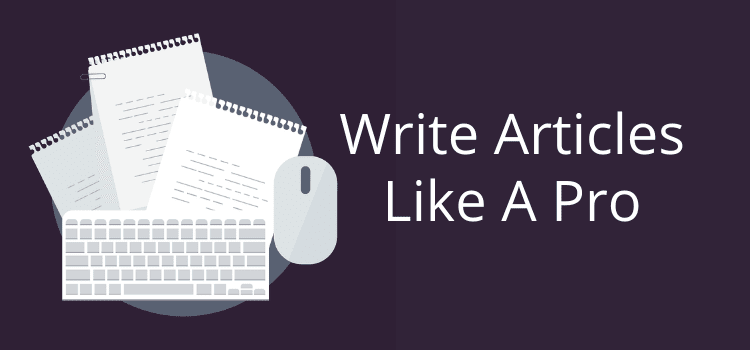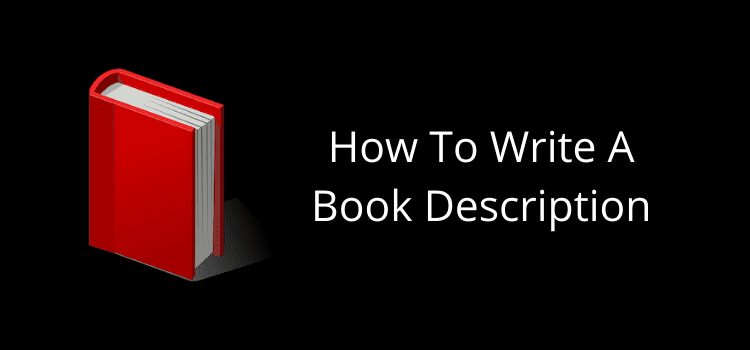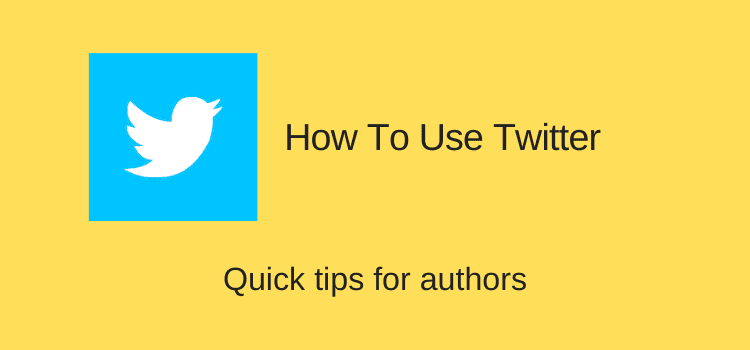
Learning how to write articles like a pro is much easier than you think.
You don’t need to be an experienced writer, a grammar genius, or an expert on search engine optimization (SEO).
So many free tools are available now to help new writers write competently.
But the critical factor in writing terrific articles is getting your message across to readers.
How to write articles that work
You have something important to say and want to share it online with people.
Publishing articles online is extremely easy. But rushing in and posting weak or poor content won’t get you far.
You need to consistently produce content that shows your expertise.
Writing articles like an expert requires a combination of your knowledge, sound research, clear writing, and practice.
Most of all, you need to be convincing and give readers good reasons to believe you know your stuff.
Imagine you’re talking to a friend and trying to persuade them that tea is healthier than coffee.
You would give them many reasons to back up your idea, and that’s what you need to do when writing.
Great articles give readers information, alternatives, answers, and choices.
Most readers discover articles by searching the Internet.
If you can provide an in-depth answer or the information they are looking for, your article stands a good chance of doing well.
Developing your foundation

If you are new to writing articles, the starting point is finding your topic area of expertise.
It doesn’t matter what you want to write about.
There are always readers looking for information or answers on any topic.
For me, it’s publishing.
But for you, it could be anything that you are passionate about.
All the best article writers stick to one general subject, topic, or theme.
But building a solid foundation of knowledge is vital to writing like an expert.
Continue to increase your understanding of the subject you want to write about.
Research extensively, read a lot, and stay updated with the latest developments in your topic area.
Follow and read articles by some of the prominent bloggers or writers in your field.
You can learn so much from well-known writers and bloggers.
I do it every day because I’m subscribed to thought leaders in my field, so I’m always getting a lot of new information.
The more you know, the more expertise you have to provide accurate and insightful information in your articles.
Plan and Outline

Before you dive into writing a new article, always take the time to plan and outline it first.
Be clear about the purpose of your article and identify all the main points you want to cover.
Structure your article with an introduction, logically ordered body paragraphs, and a conclusion or summary.
You can also consider the word count. Do you want a long or short-form article?
If your target is 2,000 words, you will need more heading topics than for a 700-word piece.
A good outline acts as your roadmap and will help you make sure that your article flows logically and cohesively and stays on topic.
Stay in active voice

You can find plenty of advice on how to write well.
But I only have one golden rule when it comes to learning how to write articles.
Use the active voice as much as possible and remove or edit passive sentences.
If unsure, you can use the Hemingway app to help you identify passive sentences.
Then you can rewrite passive sentences in the active voice, which is much more engaging and descriptive for readers.
Crafting an introduction
By far, the most important sentence in an article is the first.
You need to craft an engaging first sentence and introduction that hooks the reader right from the very start.
Some ideas include using an anecdote, a thought-provoking question, or a startling statistic to grab their attention.
It should briefly outline what readers can expect to find and gain from your article.
Research and cite your sources
To write like an expert, it’s essential that you do your research and collect information from reputable sources to support your views.
You could use academic articles, books, trusted websites, or interviews with experts in the field.
Make doubly sure that your information is accurate, up-to-date, and supported by credible references.
Cite your sources correctly to give your article credibility, and whenever possible, include links to allow readers to verify the information.
Present your ideas concisely
The best article writers have the ability to present their ideas clearly and concisely.
Organize your thoughts and present them in a logical and coherent manner using sentences that are not too long.
Every paragraph should focus on a specific idea or argument and, when applicable, supported by evidence or examples.
Use clear and concise language, avoiding jargon or overly complex technical terms that may be difficult for your readers to understand easily.
Support your claims
To write with authority, support your claims or arguments with reliable evidence.
This might include research findings, expert opinions, case studies, or statistics.
Providing credible evidence enhances the quality of your article and reinforces your position as an expert on your topic.
You can always find other writers in your field and use some of their findings to help you support your view.
Smooth Transitions
Your articles need to flow smoothly from one point to another.
Use transition words and phrases such as however, when, as well as, or in addition to create connections between sentences, paragraphs, and ideas.
Suitable transitions allow readers to follow your thought process and help maintain their engagement through the article.
A strong conclusion
End your article with a strong and memorable conclusion.
You can summarize the key points in your article or emphasize the main takeaways for your readers.
Perhaps leave them with a thought-provoking insight, a call to action, or a suggestion for further exploration.
A well-crafted conclusion provides a satisfying ending to your article for your readers.
Using tools for article writing
Learning how to write articles is so much easier today.
So many tools are available now to streamline and enhance your article writing process.
Without a doubt, artificial intelligence (AI) tools are front and center now.
Most writers are comfortable and familiar with using Grammarly.
But free tools like ChatGPT, Bing Chat Composer, and Google Bard are changing the way we all work today.
However, don’t think for a moment that they can replace you as a writer.
The best use is for research and delving into a topic to find areas you might not have thought about.
Don’t even consider that these tools can write your article. Yes, use them to help you.
But auto-generated text is far from reader-friendly and very often inaccurate. So never copy and publish any form of automated text output.
Other free tools you can use are Canva for user-friendly graphic design, Sharethrough for headline or title effectiveness, and Answer The Public for keyword ideas.
If you are publishing on your blog, Yoast and All In One SEO are terrific free plugins to help you fine-tune your SEO.
There are new tools almost every day, so try and experiment to find the ones that best align with your writing style and preferences.
Summary
Learning how to write articles like an expert always requires enthusiasm, knowledge, and practice.
Following the tips above, you can improve your writing skills, establish your expertise, and consistently produce high-quality articles that engage and inform your readers.
Remember, writing quality articles is an ongoing process of learning, refining, and adapting.
But it’s an immensely enjoyable form of writing.
So keep expanding your knowledge, honing your writing skills, and always stay curious.
Related reading: How To Write An Advice Article To Gain More New Readers
Share This Article



If you don’t mind me saying, Derek, it wasn’t the most interesting article you’ve written (or rather, that I’ve read from you). Do you think something like INK takes the interest and flow out of your writing?
I’m sorry the article didn’t excite you, Jemima. :) I use INK like any other word processor, so it doesn’t interrupt my flow at all. But it’s really handy to have all the basic SEO and writing tools all in one place. It saves me from having to use external apps. I’m still learning how to get the most out of it, but I can say that it helps me a lot.